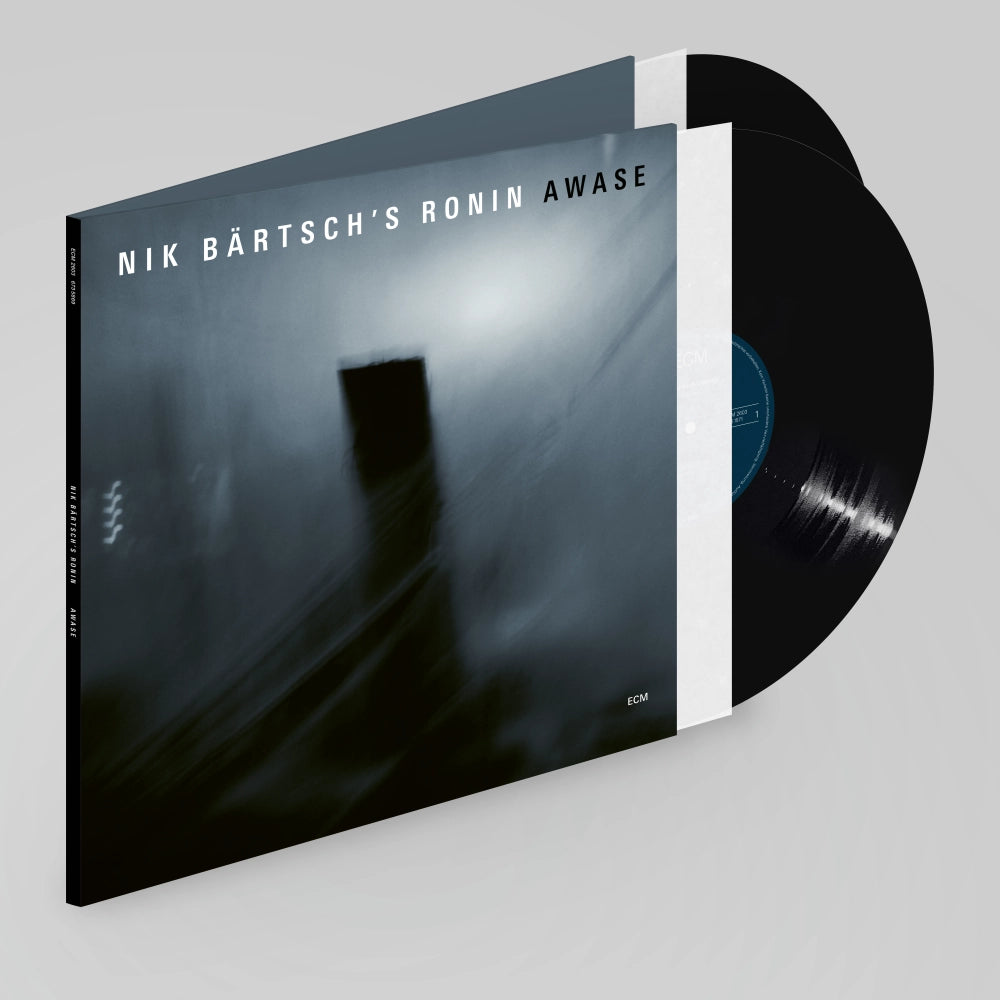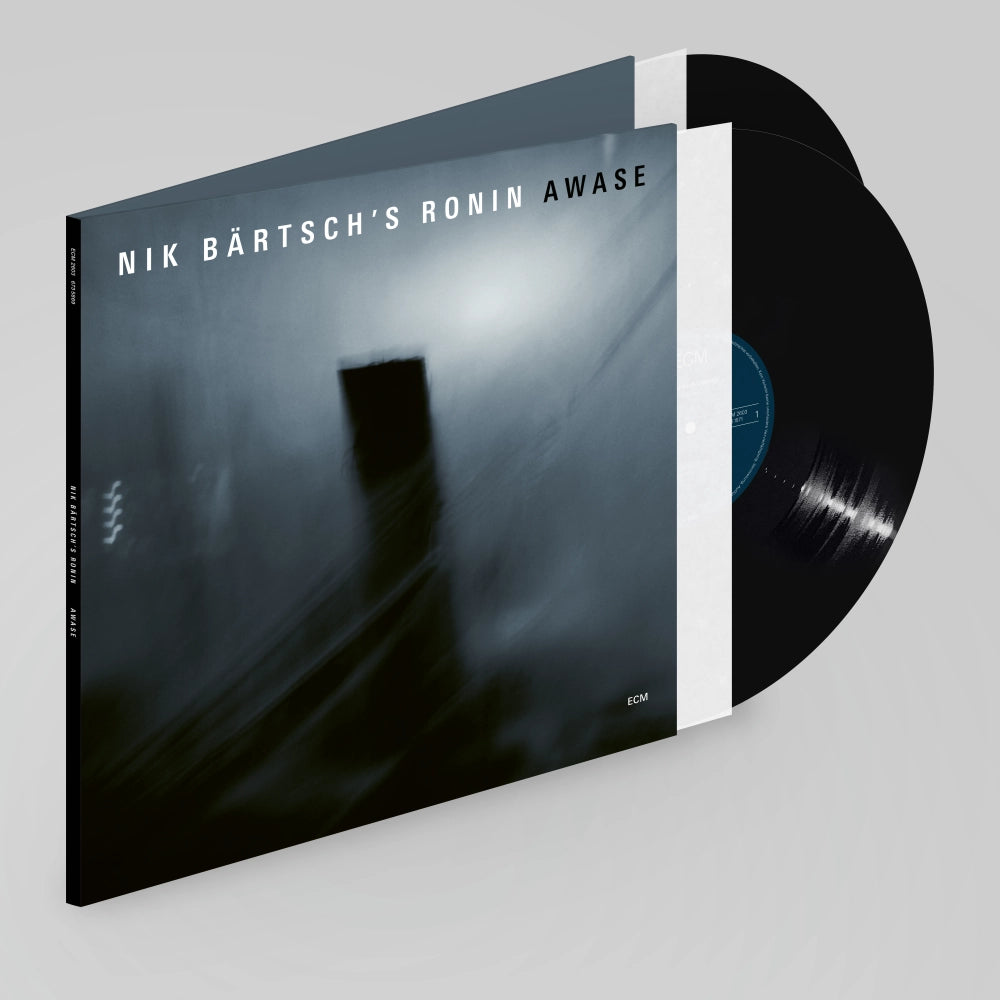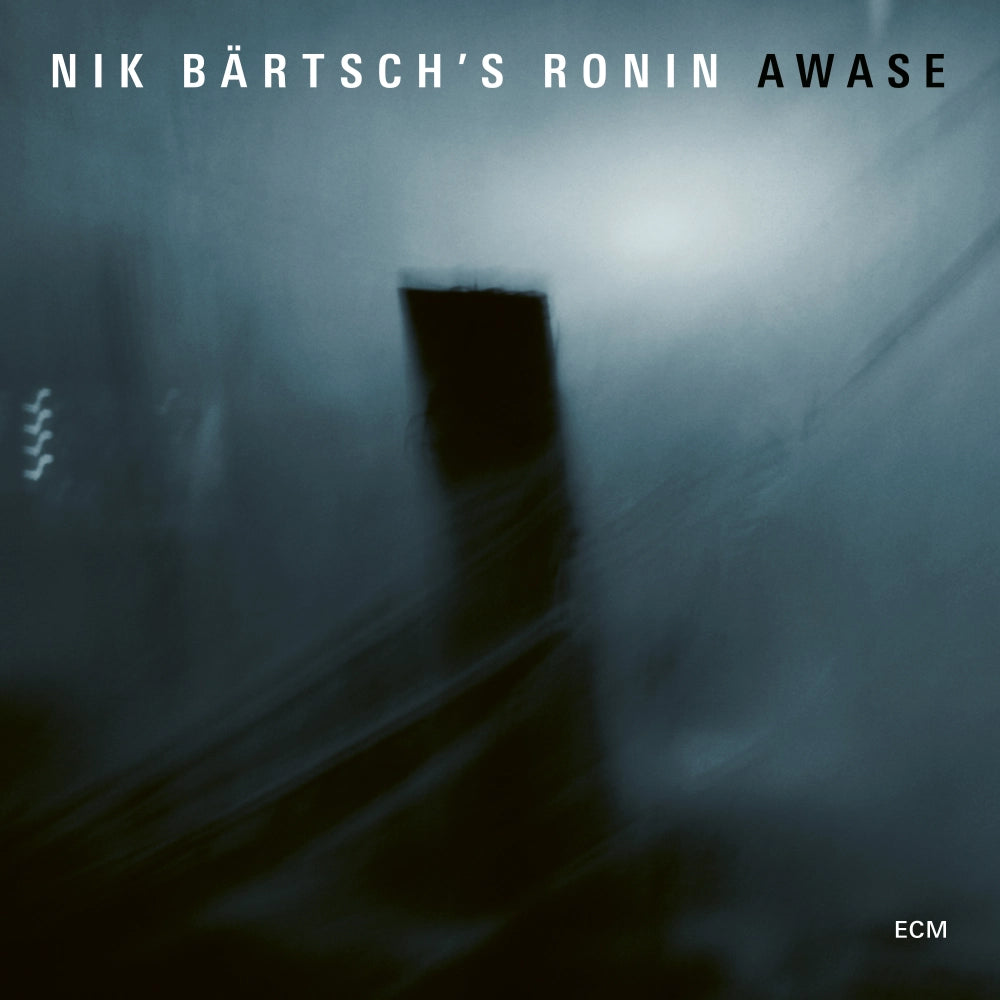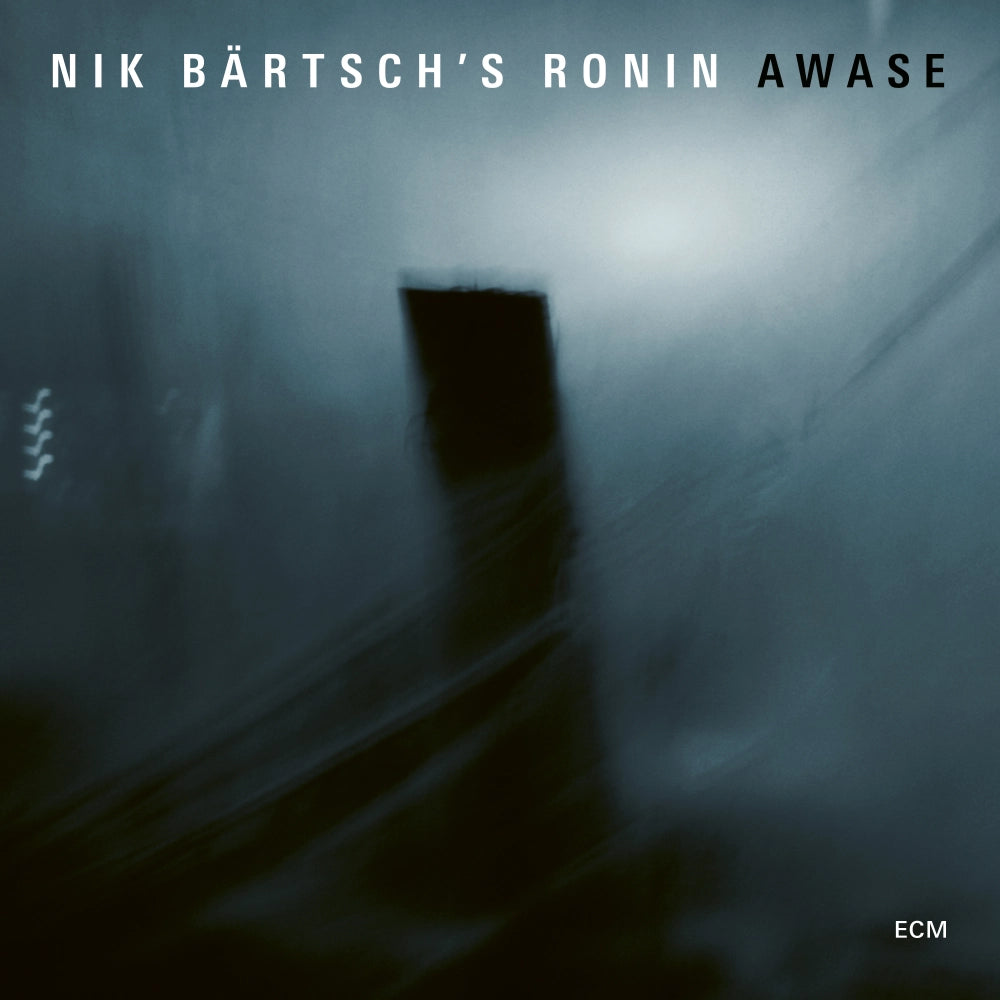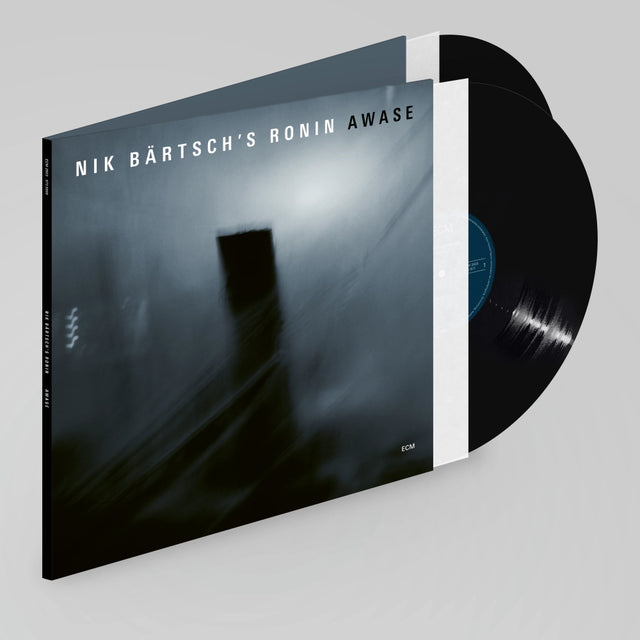ECM Records, Awase, Nik Bärtsch's Ronin, vinilinė plokštelė
ECM Records, Awase, Nik Bärtsch's Ronin, vinilinė plokštelė - Ask you before buying whether we have this item in a warehouse if we do not have to be ordered and arrive within 2-21 days.
▪️ Do you have questions about this product?❓We can consult by phone +370 683 90000 or come to our salon Armatūrinininkų St. 1, Kaunas.
Free delivery in Lithuania from € 100
Free delivery in Lithuania from € 100
In Lithuania, Venipak courier delivery is available via 1-2 business days.
Delivery outside Lithuania within 4-10 business days.
Pick up the goods in the store for € 0
Pick up the goods in the store for € 0
Armatūrinininkų St. 1, Kaunas
Working hours: Thursday 9:00-18:00
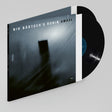
ECM Records, Awase, Nik Bärtsch's Ronin, vinilinė plokštelė
- INFORMACIJA
- TAKELIAI
- ŽINIASKLAIDOS REAKCIJOS
- APRAŠYMAS
- KONCERTAI
“Awase”, a term from martial arts, means “moving together” in the sense of matching energies, a fitting metaphor for the dynamic precision, tessellated grooves and balletic minimalism of Nik Bärtsch’s Ronin. Six years have passed since the last release from the Swiss group. In the interim, trimmed from quintet to quartet size and with new bassist Thomy Jordi fully integrated, Ronin has become a subtly different band. Bärtsch speaks of a new-found freedom and flexibility in the approach to the material, with “greater transparency, more interaction, more joy in every performance”. The freedom here extends to revisiting early Bärtsch modules alongside new compositions including, for the first time on a Ronin record, a piece by reedman Sha. Awase was recorded at Studios La Buissonne in the south of France in October 2017 and produced by Manfred Eicher.
Featured Artists
Nik Bärtsch's Ronin
Nik Bärtsch
Piano
Sha
Bass Clarinet, Alto Saxophone
Thomy Jordi
Bass
Kaspar Rast
Drums
Recorded
October 2017, Studios La Buissonne, Pernes les Fontaines
Original Release Date
04.05.2018
1 Modul 60
(Nik Bärtsch)
05:08
2 Modul 58
(Nik Bärtsch)
18:19
3 A (Stefan Haslebacher)
08:23
4 Modul 36
(Nik Bärtsch)
13:37
5 Modul 34
(Nik Bärtsch)
08:51
6 Modul 59
(Nik Bärtsch)
11:01
The album continues his modular approach, by which larger bodies coalesce from elemental forces. The newest of these, ‘Modul 60’ and ‘Modul 59’, open and close the album with hints of a concentrated future. Where the latter emotes in liminal territory, the former is a direct link to ‘Continuum’, Bärtsch’s previous record for ECM with his Mobile project. Any nods to the past, however, are refracted through a brighter coming of age: a sound that once ran now leaps. […] ‘Awase’ is also a departure for including a non-Bärtsch original by Sha: the enigmatically titled ‘A’. Gradually building an ocean out of a water droplet, its waves flow to magnetic suggestions of an itinerant philosophical compass. Like the album as a whole, it toes the line between light and shadow with every intention of shedding its ego to both along (and by) the way.
Tyran Grillo, New York City Jazz Record
Each musician captures the essence of the composer’s gift for texture, which is usually bolstered by juxtaposing exquisite lines in the form of ostinatos. […] The 18-minute ‘Modul 58’ can be seen as a sum of all the other pieces. It starts with slowly built piano layers enlivened by occasional bass harmonics and pumps, delicate cymbal splashes, and non-intrusive sax embellishments. Obstinate high-pitched notes on the piano drive us into a hypnotic rhythm that feels half-rock, half-electronic. Afterward, the quartet goes through a percussive phase enriched by saxophone pop sounds and air notes, muted pianism, and hi-hat delineations. It all ends up in a danceable acid jazz-funk hooked up in the fine rhythmic counterpoint between sax and piano. […] Bartsch’s ‘Awase’ might feel easy on the ear, but, taking into account its level of musical thoroughness, is certainly an arduous work to execute. Don’t expect improvised moments in the way they are commonly associated with jazz. This is a totally different approach, where the bandleader distills contemporary musical luster with sure-footed ritualistic grooves.
Filipe Freitas, Jazz Trail
After ‘Modul 60,’ the reflective and tranquil opener to ‘Awase’, from pianist Nik Bärtsch's groove-metric quartet Ronin, ‘Modul 58’ comes at you with such an insistence and power that it leaves you, after its persistent eighteen minutes, catching your breath, marveling at how you went from zero to mach 10 in the blink of an eye. […] Play with our heads the music does, though, in a dizzying, grand way, employing simple patterns unconcerned with downbeats or expectations and mantra-like modules (or "Moduls," as Bärtsch chooses to title his works) of sheer minimalist groove that expand, contract and expand again at the whim and will of both composer and players.
Mike Jurkovic, All About Jazz
Ein mitreißendes Groove-Jazz-Album in fantastischer Klangqualität […] Der Titel des neuen Albums ‚Awase‘ meint im japanischen Aikido-Kampfsport so etwas wie ‚gemeinsames Bewegen‘. Und genau das passiert in den von Bärtsch traditionell nur mit Modul und einer Nummer bezeichneten Stücken […] Die Wirkung ist zum Teil hypnotisch, so wie das von Thommy Jordis satt grundierendem Bass und Kaspar Rasts markigem Schlagzeug getragene Ensemble losgroovt. […] Das Highlight ist ‚Module 58‘, das geradezu rockt und die formidable Klangqualität der Produktion bestens zum Tragen bringt.
Lothar Brandt, Mint
‘Awase’ reveals Bärtsch's aesthetic methodology as instantly recognizable to anyone who has heard it before. That said, he's also expanded its color, texture, and timbral palettes, bringing a more strident physicality into Ronin's skeletal music and extrapolating it in more readily accessible harmonic compositions -- without sacrificing the layers of mystery in its heart.
Thom Jurek, All Music
Die Instrumentalisten spielen repetitive Figuren oder Patterns, die sich polymetrisch übereinanderlegen und ineinander verzahnen. So verschieben sich die simplen Motive gegeneinander und treffen sich an immer anderen Punkten. Was im ersten Moment immer gleich zu sein scheint, erscheint durch das sich entwickelnde klangliche Umfeld doch stets neu. So entsteht aus dem radikal reduzierten Spielmaterial des Einzelnen eine reiche, sich organisch entwickelnde Klangfülle, die sich gleichsam von selbst in ekstatische Passagen emporschraubt. Möglich wird diese Musik durch Ronins konsequentes Verfolgen einer Gesamtdramaturgie, die auf Kosten der individuellen musikalischen Inszenierung gehen muss […] Bärtsch, Jordi, Rast und Sha sparen ihre Musizierlust also nicht für den Moment des großen Solos auf, sondern stecken sie permanent in den Kollektivsound.
Florian Bissig, Neue Zürcher Zeitung
Zum rituellen Sog von Bärtschs Quartett (die Band des Pianisten machen heute die langjährigen Partner Sha, Bassklarinette und Alto, Thomi Jordi am Bass und Kaspar Rast am Schlagzeug) gehört ein besonderes Zeitverständnis. […] zur Community von Bärtschs Ritualen gehört das Publikum ebenso wie die Musiker. Die sind über die Jahre zu einer beispiellosen Dichte zusammengewachsen, die ihre kunstvoll polymetrische Kunst wie ein Naturereignis erleben lassen.
Peter Rüedi, Die Weltwoche
They’re able to sustain a remarkable level of focus and intensity over extended periods. At 18:19, ‘Modul 60’ is the longest piece the group has recorded to date, and it’s also one of their most exciting, featuring repeated rises and falls and even something like a crescendo. ‘Awase’ is a highly assured album by one of the most interesting groups in European classical/jazz/funk. Ronin have been away too long; it’s good to have them back.
Phil Freeman, Burning Ambulance
It’s hard to speak of Bartsch’s individual pieces in structural or narrative terms. They’d probably be drained of mystery if a commenter or listener were to exhaustively do so. It’s certainly easier to latch onto other aspects, such as the slow, asymmetrical chanting quality of ‘A’, Bärtsch’s occasional inside-the-piano percussion work in ‘Modul 36’, the beseeching, vaguely Arabic intimations during ‘Modul 60’, the jump cut that leads into the exultantly funky and polyrhythmic ‘Modul 34’, and the slow, airy start of ‘Modul 59’ and the grinding, bass-clarinet-enhanced groove that materializes from it before spiraling in intensity. Sonically, the album could not be more lucid, which is as it should be given that clarity and exactitude are key to Bärtsch’s music. I would feel deprived if I listened to nothing but Bartsch’s oeuvre day in, day out. But at the same time, it makes me listen and engage with music in a different way, perhaps even meditatively so, and makes me hear other music differently when I return to it. That’s something of a gift, I think.
Peter Hum, Ottawa Citizen
Der Titel des neuen Albums ‘Awase’ gibt die Richtung vor: ein Begriff aus der japanischen Kampfkunst Aikido, der das Zusammenfließen von Energien beschreibt. Demzufolge kommt der ‚neue’ Ronin leichtfüßiger daher, nicht zuletzt, weil sich Jordi im Gegensatz zu seinem häufig solierenden Vorgänger Björn Meyer auf die klassische Rolle des Bassisten als Begleiter konzentriert und dadurch dem Piano mehr Luft gibt. Die Band arbeitet immer noch mit Bärtschs Modulen, diesmal fünf an der Zahl und bis zu 18 Minuten lang. Als Novum steuert Sha eine eigene Komposition bei (‚A‘). Und sie beherrschen immer noch die Kunst der harmonischen und rhythmischen Verschiebung, 2018 jedoch noch einen Tick differenzierter und variantenreicher als in den Jahren von Sturm und Drang.
Reinhard Köchl, Jazzthing
‚Awase‘ is another superb and cohesive disc that higlights Bärtsch’s and his sidemen’s outstanding musicianship and artistic vision.
Hrayr Attarian, All About Jazz
In der Summe ergibt das diese felsenfeste Kompaktheit, die doch voller winziger Ziselierungen ist und sich kraftvoll und massiv zum Hypnotischen entfaltet. Dabei behält sie eine Transparenz, die das gemeinsame Voranschreiten mitvollziehbar und plausibel machen. Alte und neue Module ergänzen sich so auf einem beeindruckend durchgehaltenen Energielevel, das seine Wurzeln im Steten des gemeinsamen Arbeitens hat.
Ulrich Steinmetzger, Leipziger Volkszeitung
This being their first album since 2012’s ‘Live’ and the first studio album since ‘Llyrìa’ the year before, the sonic footprint Ronin had indeed dwindled somewhat, since replacing Björn Meyer’s 6-string bass guitar with Thomy Jordi’s four string guitar and percussionist Andi Pupato departed with no replacement at all. That left a quartet with also Bärtsch on piano, Sha on bass clarinet/alto sax and Kaspar Rast on drums. None of that has made Ronin incomplete in the least. The originators of ‘ritual groove music’ remain focused on that mission, but this in a band in gradual but perpetual transition and the strategy might not manifest itself on the first or even second listen but when it does, that ‘a-ha!’ moment is always rewarding. So, Jordi might not be as much of a natural ‘lead guitar’ bassist as Meyer but he can weave himself deeper into Bärtsch’s elaborate tapestries. Extra percussion can come from unconventional places, such as from knocking on panel of a piano or puffing on a reed, and nothing is lost from doing so. […] It’s a somewhat revamped Ronin, but Nik Bärtsch saw opportunity with those changes and exploited them. ‘Awase’ can move both your mind and your soul but the deceptively fresh approach it takes to get under the skin like that is the brilliance of Bärtsch and his Ronin quartet. If you don’t get it on the first listen, put on some headphones and take it for another spin; I’m sure glad I did.
S. Victor Aaron, Something Else Reviews
Swiss pianist-composer Nik Bärtsch has been injecting electronica and minimalism with soul, jazzy hipness and danceable bounce with his Ronin Ensemble since 2001, and ‘Awase’ – with bass recruit thomy Jordi adding a new fluidity – deepens the group’s famous expressiveness of tone and texture.
John Fordham, The Guardian Online
‘Awase’ having a quartet version of Ronin in tow, brings a sense of more space and freedom for each band member to make micro movements within the often striking almost machine like precision they execute. The micro movements allow for subtle changes in the tonality and texture that much minimalist music reveals over time, but there is still a quite organic almost improvised feeling. […] ‘Awase’ and Bärtsch’s utterly singular concept of ritual groove music, which is sometimes exercised for days at a time is nothing less than compelling and hypnotic. The group has little to do with ‘jazz’ in the traditional sense of the word, but the spirit and adventure of jazz is in every note.
CJ Shearn, Jazz Views with CJ Shearn
Pianist Nik Bartsch occupies a unique spot in music. The Swiss bandleader/composer’s work with his long-running band Ronin is jazzy, but not quite jazz; heavily influenced by contemporary classical music, but not that, either; subtly funky, but definitely not funk. Bartsch calls it ‘ritual groove music,’ which is a pretty open-ended way to describe anything. Suffice to say that Bartsch’s work makes a virtue of not fitting under an umbrella, especially on Ronin’s eight album ‘Awase’. […] Unafraid to show their skills, yet decidedly unflashy, Bartsch and his musicians put all of their energy into supporting the tunes themselves, rather than set up showcases. That makes ‘Awase’ an album with a resonance outside of the jazz atmosphere, but without the scent of any compromise whatsoever. No mean feat, and one that helps make Ronin its own distinctive beast.
Michael Toland, Blurt
Of minimalist tendencies, but a hell of a lot more funky and slinky than the stiff metronomics of Philip Glass and Steve Reich, it even sounds somewhat jazzy at times, although, apart from a section in the wistful ‘Modul 60’ which features a free-flowing, expressive alto saxophone solo from Sha (aka Stefan Haslebacher), it is hard to tell whether there is any improvisation. Even that solo in ‘Modul 60’ could be fully composed. Nik Bärtsch builds up his compositions organically, out of simple motifs that gradually accrue layers of material until a high level of melodic and rhythmic complexity is reached. […] Simply put, ‘Awase’ means the blending of things, and that’s a good description of how Ronin functions. It’s a tight-knit unit, collectively strong, so much so that at times I stopped noticing which instrument was doing what and just listened to the music as a thing in itself. […] Despite Bärtsch’s immemorable titles (apart from one excellent piece by Sha, all are numbered ‘Moduls’), the compositions have tons of character. They’re atmospheric, propulsive and often dazzling displays of rigour and group interplay.
Brian Marley, London Jazz News
Erheblichen Anteil am teils treibenden, teils kreisenden Groove haben Thomy Jordi am Bass und Kaspar Rast am Schlagzeug. Die Bassklarinette und das Altsaxofon von Stefan Haslebacher, unter dem Künstlernamen ‚Sha‘ seit 2003 ein Ronin, kommen diesmal besonders zum Tragen. Mit ‚A‘ ist auch erstmals ein Stück von ihm dabei, ein feines eigenständiges Gebilde, das gleichwohl zwischen den Modulen 58 und 36 vermittelt – denn das Album funktioniert nicht als Ansammlung einzelner Werke, sondern ist Arbeitsprobe und Gesamterlebnis in einem. Eine der spannungsreichsten Jazz-Veröffentlichungen des Jahres bisher, fünf Sterne sowohl für die hier kernige, da fließende Musik als auch für den exzellenten Klang.
Jens-Uwe Sommerschuh, Sächsische Zeitung
A dedicated martial arts practitioner, Bärtsch’s work embodies a graceful economy of movement combined with the rapid and often unexpected transference of energy from one body to another. Drummer Kaspar Rast’s extrasensory beats accent and underpin breathtaking exchanges between Sha’s sinuous woodwind and saxes and bassist Thomy Jordi’s kinetic pulses. Filled with dynamic themes, these dovetailing syncopations might sound cerebral but Ronin’s music is intensely physical, with a punchy groove that’s irresistible. Not a solo insight, this is the sound of four people moving as one. If their back catalogue is a treasure chest spilling over with glittering jewels, ‘Awase’ is their most spectacular gem to date.
Sid Smith, Prog
Nik Bärtsch treibt seine radikale und doch zugängliche Soundforschung mit ‘Awase’ zu einem neuen Höhepunkt.
Claudius Grigat, Chrismon
At times you’ll hear echoes of Steve Reich or King Crimson (notice the interlocking odd-time passages throughout ‘Modul 58,’ for example), but mostly what you hear is instantly recognizable as Bärtsch and only Bärtsch. Sometimes hypnotizing, often funky, and sometimes brilliantly disorienting, this is utterly unique and deeply beautiful music.
Rick Anderson, CD Hotlist
Die verschworene Gemeinschaft, die Ronin bildet, zeigt sich wohl nirgends so deutlich wie auf ‘Modul 58’, dem mit 18 Minuten längsten Stück des Albums: Ein fünfer- und ein Siebener-Rhythmus arbeiten scheinbar gegeneinander und erzeugen in ihrer Einfachheit einen pulsierenden Groove, der selbst an Stellen, an denen Schlagzeuger Kaspar Rast aussetzt, fortzubestehen scheint. Bassklarinettist Sha, der mit ‚A‘ erstmals ein Stück zum Repertoire beigetragen hat, verzahnt sich unauflöslich mit Klavier und Bass – wer hätte gedacht, dass diese Band ihrer hohe Qualität überhaupt noch steigern könnte. Magisch.
Rolf Thomas, Jazzthetik
Pianist Nik Bärtsch’s Ronin trim their sails and sharpen their already laser-like focus on ‘Awase’, the combo’s first studio release in eight years. Slimming down to a quartet appears to have only intensified Ronin’s near-telepathic discipline and their unique triangulation of chamber minimalism, jazz improvisation and crown-chakra funk.
Richard Gehr, Relix
It’s been six years since the last release form Nik Bärtsch’s Ronin, but ‘Awase’ is a welcome return to familiar form. […] The new disc also sees the departure of percussionist Andi Pupato, leaving it a trim piano quartet; subdued drums in the back; grounded four-string electric bass replacing the melodic six-string; and the leader commanding less of the spotlight than on past outings. […] The album opens with the fleeting ‘Modul 60’, feeling like a prologue before the credits kick in. But once the story gets moving, it’s exhilarating. From start to finish, it’s a compelling album.
Kurt Gottschalk, Downbeat
Bärtsch’s signature resources – built on looping, Steve Reichian minimalist figures, layered with brooding North-Euro sax murmurs and ingenious polyrhythmic accumulations, varied by breakouts into catchy jazz-funk – remain hypnotically present on ‘Awase’ (it’s a martial arts term from aikido, which Bärtsch practices), but much of the set has an exuberant and open feel that this meticulous, unflinchingly disciplined artist’s studio work has sometimes lacked. […] As is always said of Nik Bärtsch in jazz contexts, don’t expect quirky improv or storming post-bop solos, but his jazz and rock-inflected ‘ritual music’ always exerts its own kind of mesmerising pull.
John Fordham, Jazzwise
Six years have passed since Live, the last release from Nik Bärtsch’s Ronin, the long gap bridged in 2015 with Continuum, an album from Mobile, Bärtsch’s all-acoustic project. “I wanted to give Ronin the peace and space it needed to develop,” says the Swiss composer-pianist. “Not to put it under pressure, and to take all the steps necessary before the next recording.”
Awase, recorded at Studios La Buissonne in the South of France in October 2017 and produced by Manfred Eicher, updates us on the progress of one of the most original bands around, as well as the present-day status of ritual groove music, Bärtsch’s all-purpose term for his self-invented idiom equidistant from jazz and funk and contemporary composition. Almost by definition, rituals can’t be rushed, and Ronin has had some changes to absorb. With bassist Thomy Jordi replacing Björn Meyer in 2011, and percussionist Andi Pupato departing the following year, trimming the line-up from quintet to quartet, Ronin has gradually become a subtly different band. A leaner, more agile animal.
Bärtsch speaks of a new-found freedom and flexibility in the approach to the material, with “greater transparency, more interaction, more joy in every performance”. The freedom here extends to revisiting earlier Bärtsch modules alongside new compositions including, for the first time on a Ronin record, a piece by reedman Sha. “We’ve spent a long time working on the new repertoire, really checking out and fine tuning all the details.”
Awase, a term from Aikido, means “moving together” in the sense of matching energies, a fitting metaphor for the dynamic precision, tessellated grooves and balletic minimalism of Ronin today. In the old band, Bärtsch often chose to present Björn Meyer’s flamboyant 6-string bass as a lead instrument. Thomy Jordi’s 4-string bass guitar tends to be deployed within the fabric of the pieces, creatively fulfilling a more traditional bass function and locking in with Kaspar Rast’s powerful drums. With Bärtsch also scaling back his own solo playing, listeners are encouraged to hear the whole music and its layered, shifting approach to interaction in new ways.
The album opens with an abbreviated version of “Modul 60”, quite unlike the interpretation heard on the Mobile recording. “We’ve always taken the position that the compositions can be played by both groups – Mobile or Ronin – to bring out different aspects of the music. When we did ‘60’ with Mobile, I was hearing it in a very chamber music way and it radiated a sort of bittersweet atmosphere. With Ronin it has a sparseness, an emptiness and a roughness that I really like. In the studio Manfred and I had the idea that it would be nice to play it as a sort of ‘quote’, bringing the story forward from Continuum. So, this new version starts around the middle of the composition…”
“Modul 58” is built upon – in Ronin terms – “a simple pattern cycle, just 5 against 7, and the same motif even, but it created such an interesting form. We usually think that metre, rhythm and the start of a piece all begin on the ‘one’, but in a lot of the tribal music styles we admire there is often not such a clear downbeat. ‘58’ becomes a kind of metric mantra which keeps loading itself up until we get to the more open part. You can hear, almost ironically, the simplicity of the two rhythms but you cannot catch them at the same time. In its direction and its energy this piece still feels new to me, although there is something about it that seems archaic.”
The role of bass clarinettist and alto saxophonist Sha (born Stefan Haslebacher) has been steadily growing inside Ronin, and this is acknowledged by the inclusion of his composition “A”, which forms a contrasting transition on the album between “Modul 58” and “Modul 36”, while also being an effective piece in its own right. Nik Bärtsch: “When Ronin plays it as an organism it attains an enormous power and it shows, I think, that Sha is developing a personal and unique language as a composer.”
“Modul 36” is an old Ronin favourite which introduced the group to ECM listeners back in 2006: “Yes, it was a conscious decision to choose that piece to mark this quartet album also as a kind of new beginning, and to show how things have developed. In terms of structure and clear, fine detail, the compositional aspects – those things remain. But the group feeling is very different and the energy more voodoo-ish, perhaps. And I’m really enjoying playing as part of the band again on ‘36’, rather than soloing.”
Written “back in 2002 or 2003”, “Modul 34” receives its premiere recording here. “Sometimes pieces just have to wait until they are ready, or we are ready. Part of the challenge with ‘34’ was not to allow it to become too busy on the one hand, or too formal on the other.”
The members of Ronin meet every week, as they have done for many years now, to puzzle out the implications of Bärtsch’s pieces in workshops and performances at the Zürich club, Exil. The group is, says Nik, still coming to terms with the demanding final piece here, “Modul 59”. It is one which, he says, points the way to the future. “It begins from basic ideas, in this case to do with triplets, and builds until it becomes a sort of polyrhythmic, polyphonic carpet of sound. We’ve rehearsed and developed it extensively, and it still keeps surprising us.”
YEAR DATE VENUE LOCATION
2025 April 02 Teatro Carani Sassuolo, Italy
2025 April 15 Hall Of Mirrors Bratislava, Slovakia
2025 April 16 Jazzclub Tonne Dresden, Germany
2025 April 17 A-Trane Berlin, Germany
2025 April 18 Theaterhaus Stuttgart, Germany
2025 June 13 Alhambra Genf, Switzerland
2025 August 08 Ronnie Scotts London, United Kingdom
2025 October 11 EnjoyJazz Karlstorbahnhof Heidelberg, Germany
2025 November 29 Nica Club Hamburg, Germany

